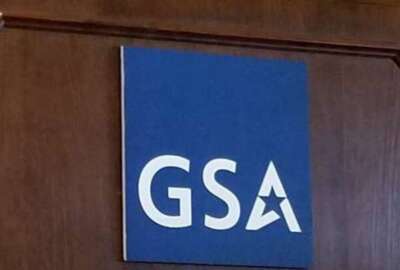GSA praised for steps to reform culture, organization
Senate lawmakers and the agency's Inspector General say the strategy to reorganize the General Services Administration and make it more accountable is on the...
wfedstaff | April 17, 2015 4:10 pm
The General Services Administration’s plans to reform its culture and organization received two thumbs up Wednesday.
GSA’s Inspector General and Senate lawmakers praised acting Administrator Dan Tangherlini’s strategy to centralize the IT and human resources functions and reduce contracting fees as a main part of his plan to bring the power and oversight back to headquarters and away from the regions.
Tangherlini, who testified before the Homeland Security and Governmental Affairs Committee, said the five- month top-to-bottom review showed the way former officials restructured the agency in 2009 were part of the root cause of the agency’s troubles.
“There were substantial problems with the way organization changes were made. That’s why I’ve done everything I can to reverse them and clarify the role of the regional administrator,” he said. “Some of those changes will require additional work on what is the long-term role of the regional administrator. How does the region fit within the organization? They are bigger questions. In the meantime, I don’t want regional administrators out there to feel they are not empowered to call out waste or abuse or concerns, and say they don’t have the power to resolve them. We’ve done a couple of things. We’ve given them the head of contracting authority so they can determine if things can be bought. They work closely with our senior procurement executive to determine who has warrants and frankly who doesn’t anymore.” 
“That’s what we’ve been doing to make sure we have clarity of role and responsibility in the organization,” he said.
These changes are the latest of several that emerged after GSA’s Inspector General detailed Public Building Service’s Western Regions conference spending excesses in April. The scandal led to the resignation of GSA Administrator Martha Johnson and the firing of PBS Commissioner Bob Peck and senior advisor Stephen Leeds.
“We know now from the work of the IG and other work that has been done and some evidence that our own committee has collected, there was a culture of abuse and irresponsibility in GSA’s Region 9 with all of that extravagant travel, misuse of government purchase cards and a very poorly run awards program. … We found questionable bonuses awarded throughout the agency, thousands of dollars spent on cooking classes for employees in the Kansas City region and a $270,000 awards ceremony where taxpayers paid for GSA employees to beat on drums,” said Sen. Joseph Lieberman (I-Conn.), chairman of the committee. “In too many parts, GSA had become an agency out of control.”
On the right track
Under Tangherlini’s leadership, Lieberman, Sen. Susan Collins (R-Maine), ranking member of the committee, and even GSA IG Brian Miller, said the strategy puts GSA on the right track.
“This is the moment to try to put into place systems that will stop a repetition of the infuriating behaviors of GSA employees when the memory of what happened in Western region 9 is gone, which is another part of human nature and history and organizations that repeats itself,” Lieberman said. “You are well on the way to doing that. It does require constant oversight, strong leadership by the agency in the agency and constant oversight by Congress.”
Collins said by addressing the lavish conference spending and high number of bonuses shows Tangherlini is taking the restructuring efforts seriously. She said there are no plans for legislation to change GSA until the committee can see how Tangherlini’s reforms take hold.
Miller, whom Lieberman called a “hero” for his office’s work in exposing the problems, said he’s encouraged by the steps Tangherlini has taken so far.
But even with all this praise, lawmakers, the IG and Tangherlini know there are plenty of problems that need to be addressed.
One such challenge is the fee structure. A 2009 IG report found GSA’s Federal Acquisition Service has a surplus, or profit, of $687 million. FAS collects between 0.75 percent and 2 percent fees based on the total price of the contract for the use of their schedules or for providing assisted acquisition services. Under the law, FAS can hold funds in reserve, but Lieberman questioned how much they need and if almost three-quarters of a billion dollars is too much.
The Government Accountability Office in September 2011 reviewed the fees charged by GSA, NASA, the National Institutes of Health and the Interior Department to other agencies to use their governmentwide acquisition contracts. Auditors found four out of six contracts or services reviewed brought the agency “excess revenue” ranging from $1.7 million to $62 million a year.
IG Miller said he didn’t have an update from the 2009 report. Tangherlini recognized the fee structure is hampering the agency.
“We think there already is an opportunity for us to reduce fees. We have a surcharge on the strategic sourcing initiative contracts that in many ways discourages agencies from doing the right thing and using strategically sourced contracts,” Tangherlini said. “We want to take away that fee. We want to reduce some other fees. We really want to kick off a broader discussion with our agency partners and say ‘What is the right structure for these fees going forward?'”
Agencies currently pay 2 percent to use the strategic sourcing contracts. Tangherlini wants to reduce that to 0.75 percent by removing the 1.25 percent surcharge.
GSA hasn’t changed the fee structure since 2004.
CICA violations
One area where Congress may get involved is tightening the rules when GSA violates the Competition in Contracting Act of 1984 (CICA), which requires agencies to the maximum extent practical to use full and open competition unless one of several exceptions apply, such as those for small businesses.
IG Miller said his office has found several violations of CICA, especially around the Recovery Act.
“I saw a notable disregard for the requirements to seek out competition in the aware of federal contracts by GSA in order to ensure we are getting the lowest price at the best quality,” Collins said. “I believe the contract to the resort at which the infamous conference was held was a sole source contract despite the fact there were clearly many hotels that would have been happy to bid on that contract.”
Miller said GSA is not required to report violations of CICA to their oversight committees, similar to the Anti-Deficiency Act violations. He said his office has submitted a proposal to the Hill to remedy this shortcoming.
Collins said she plans to address this hole in the law.
“We need to immediately write a bill to implement the proposal that the IG had in reporting violations of the Competition in Contracting Act,” she said. “I intend to ask my staff to draft that immediately with the hopes of getting it on the mark up agenda for next week or at least in the lame duck session. That is a great idea and one that is easy to implement.”
RELATED STORIES:
GSA to centralize oversight of IT, HR after top-to-bottom review
Agencies earning a ‘profit’ from contract fees
Copyright © 2025 Federal News Network. All rights reserved. This website is not intended for users located within the European Economic Area.
Jason Miller is executive editor of Federal News Network and directs news coverage on the people, policy and programs of the federal government.
Follow @jmillerWFED






